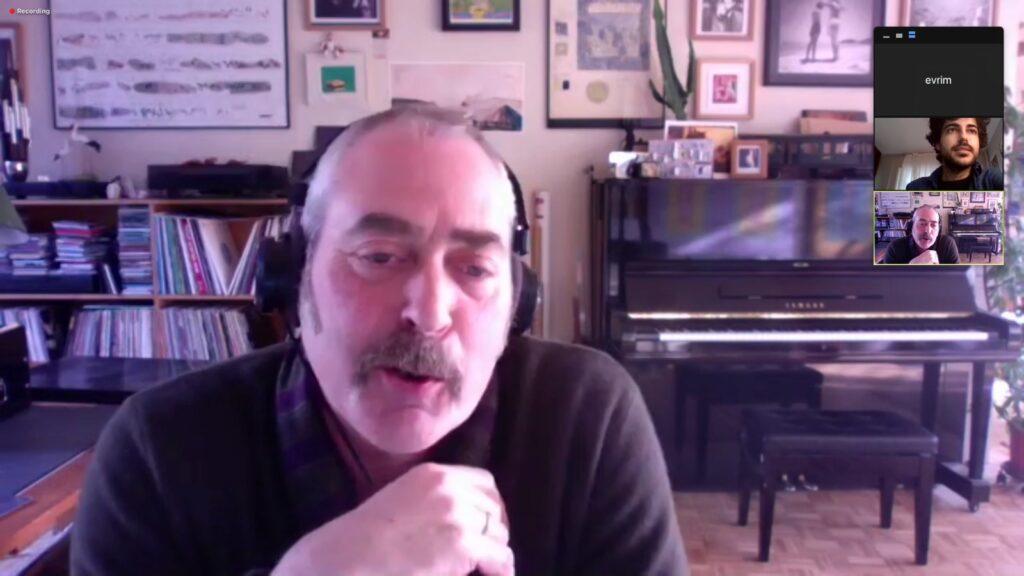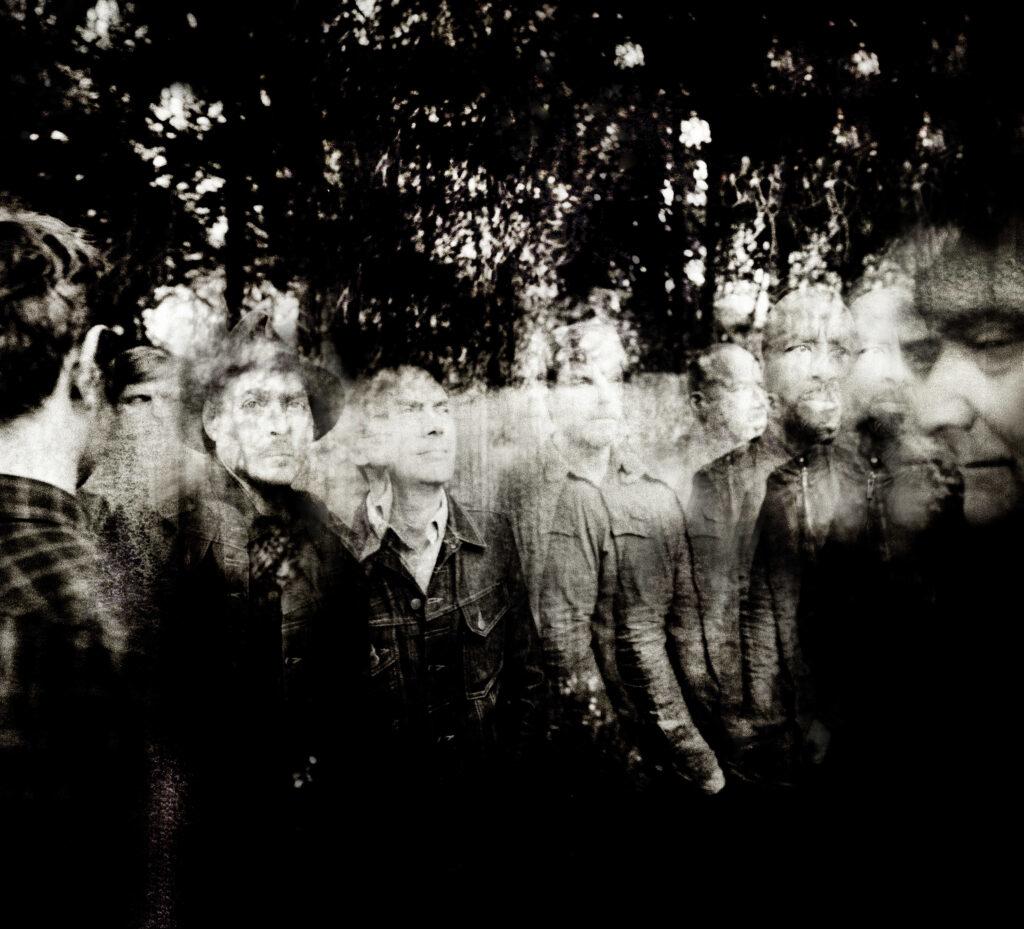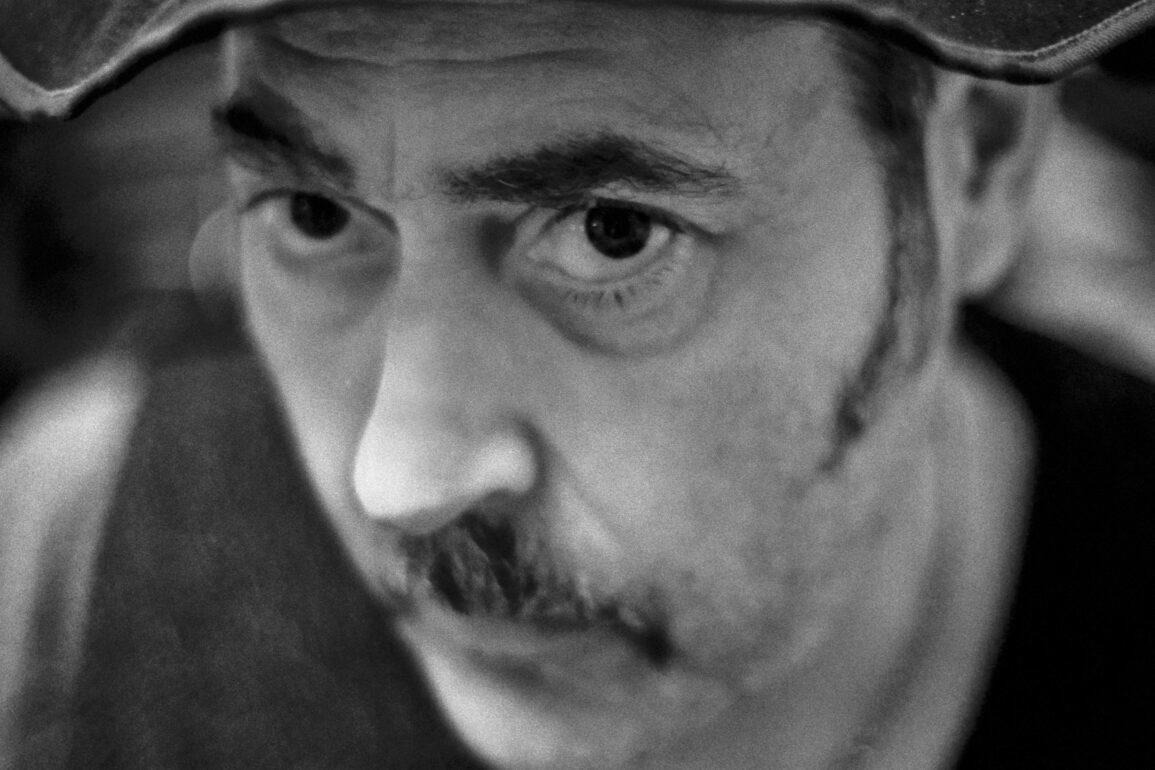“For deep relationships and understandings to form, it needs time. I never expected for this to happen again. I feel like we’re stronger as a unit of five people than we’ve ever been.”
For those who are familiar to the alternative British music scene, Tindersticks need no introduction. They came on like a storm in the 1990’s and proved they still had the magic in 2010’s with records like The Waiting Room and No Treasure But Hope. Their latest album, Distractions, is yet another beauty.
Stuart A. Staples, Tindersticks’ frontman who had seen it all for 30 years, agreed upon having a chat with us. Shortly after we started our conversation, it became evident that we were talking to a humble, down-to-earth gentleman who is willing to share his thoughts with us sincerely. After the 30-minute interview, we felt that we had formed some kind of friendship.
You can read the interview below, and check out the Turkish translation here.

How are you doing these days?
I don’t know if you’re feeling it in Istanbul as well, but here, we started to feel the start of spring. Maybe spring brings a little hope, which we hadn’t had for quite some time. I hope there are changes around the corner, that we get a bit of freedom. But it’s definitely feeling like a long time now.
It’s a whole year lost.
I don’t think it’s just ‘lost’. But I can’t help thinking about young people. I think of when I was 19-20, being in the same situation myself. I cannot really imagine that with my lifestyle, especially being a British musician. When the time came for us to play in Europe, it was easy. Now everything is difficult. The young people have the worst deal out of this.
Let’s hope that it gets better.
Yes.
Here at Kıyı Müzik we love your new album, Distractions. The first thing I noticed about it was that it contains some of your most obscure songs in a while. You have already stated that the modern day and age has affected its creation. Can you elaborate further on that process?
In a way, the last album, No Treasure But Hope, was a kind of ‘classic’ Tindersticks record. But for me, it was a break. Before that, maybe since 2012 or 2013, I had made different works: The soundtrack for Les Salauds, which was all electronic, The Minute Bodies soundtrack, the solo album Arrhythmia, the High Life soundtrack… For the band to come together again to make No Treasure But Hope and to go on tour, we made a naturalistic kind of record. It was a breath of fresh air to pick up an acoustic guitar and to write songs with the guys and to sing. But after finishing it, as much as I love it, I felt the need to be back in my studio and my own environment with time to experiment. I think that was the start of “Man Alone (Can’t Stop The Fadin’)” and “The Bough Bends”…
The whole album is very informed by No Treasure But Hope, because the writing was rigorous for NTBH. Even with the eleven-minute song “Man Alone”, the actual arrangement, the way each moment of the song is thought about is just as much as “For The Beauty”, the first track of NTBH. It’s just a different way to think about the success of a moment, I suppose.
For No Treasure But Hope, you adopted a more narrative structure. This record, due to its abstract nature, has an opposite approach. How did you work this time around while writing the lyrics?
To me, that’s the most radical difference between the two albums. The space on Distractions for the singing and writing of the words is like a new place for me to be in, an exciting place. There’s always a moment a song enters you, and in that moment you understand so much of what it’s asking for. Even if it has no words, no melody or anything. All you can do writing a song is to try and capture that feeling within a piece of music. That feeling that you feel really, really strongly.
With No Treasure But Hope, it was very narrative. All of the words had to be written and formed completely, because the album was going to be played live in the studio. Everybody needed to know exactly what they were doing. We were in the studio for one week to record this album live.
This new album is trying to capture that feeling, but in a different way. It’s far more abstract, far more loose. It’s far less pinned down. Trying to write the words, it became apparent that these words were sometimes two or three different things and feelings at the same time. How to explore them became something new to me. It became something exciting. It became the only way to try and capture these particular songs. With “Man Alone (Can’t Stop The Fadin’)”” and “The Bough Bends” especially, it was a different experience to use words and my voice. It feels like the start of a new journey, in a way.
For Distractions, you also shifted up your instruments.
I think the ideas demanded that, really. I started the arrangements with a bass guitar and a drum machine, so everybody has to shift around from that point. I didn’t want to play the guitar, I only wanted to play bass. Dan (McKinna), our bass player, played a lot of piano, our drummer Earl (Harvin) played a lot of synthesizers… Everybody in the band had to find their voice in the songs in a different kind of way. That feels like a real growth point to me.
Sometimes, the most creative thing you can do in a band is to not play. As long as you’re engaged and you’ve thought about it all and decide not to play… That is the most creative thing sometimes. It was really important to me that we were all together in believing that we were doing the right thing, and to be able to have deep conversations about this thing we were making. To me, that’s more important than somebody playing an amazing part in a song. It more has to do with an unified response to something.
The album opener, “Man Alone (Can’t Stop The Fadin’)” is an interesting piece of work in terms of genre. I believe it is also your longest song to date, right?
I don’t know. Maybe. (laughs)
You also made the music video for the song where you edit images of your cab journeys across London. To you, what does this video capture about the city and the song?
I don’t think it’s just about London. It could easily be about Istanbul. But I think it’s about being alone in the city. For London, it is special just because of the design of the London cabs. The taxis in London are not cars, you don’t feel like you’re in a car on the backseat. You’re in this square space, and the driver is away from you beyond a glass. You’re in a private place. A kind of place where you can feel very alone. Even if you’re driving through Piccadilly Circus, or Shaftesbury Avenue. You’re pushing through thousands and thousands of people, yet it’s a place that’s very isolated. That became something I was really fascinated by.
That makes me miss London even more.
Me too. (laughs)
Where are you?
I’m in the middle of France, where my studio is.
Do you plan to release more videos from the album?
To be honest, I was surprised I even got that one made in these times, so… No. Looking back on last year now, I’m just pleased that this record was made. It was really difficult. It could have so easily been avoided. Having the album finished, I feel the struggle in it. I feel a desire in it, and I’m glad it has been released. This week, I’m almost free of it. It’s up to everybody else and what they take from it. I feel like I’ve done what I could.

“Tue-Moi” is inspired by the Bataclan attack in 2015. You have written many heart-wrenching songs over the years. If it won’t be too personal, is there any that comes off uneasy for you to revisit?
That song is really difficult for me. I can’t say it’s exactly about the attacks in Paris or Manchester, but it was definitely sparked by that feeling of being confronted with somebody driven by something that they feel is higher than themselves. Reducing that down to a personal, intimate song or experience… That’s what I hoped that song would be able to touch. It’s not something I feel easy with at all.
I’ve played in Bataclan 4 or 5 times. I have these memories where I can remember everything about the moment: The smell, the lights, the feeling… I have so many memories like that: Playing concerts, before and after concerts, in a restaurant after a concert… I have a very vivid one of being on stage at the Bataclan that made me feel so close to it. It has taken me a long time to figure out what this feeling is, trying to come out from me, but I don’t feel easy with it at all. I just had to be free of it. Writing a song, it comes to you in a moment. You accept it or you don’t. That’s the only choice for me to have. Once you accept a song, you have a responsibility towards it, and it’s part of you. Then you need to be free of it. It needs to be finished, it needs to be over. It needs to be an end to a journey. If I’d proved myself too afraid to accept this song or too afraid of its need to be sung in French, I would be compromised. It just has to be, and I just have to accept it.
I believe “The Bough Bends” is the most classic Tindersticks moment of the album. What stories does it hold? I’m almost sure that it tells a story…
You’re almost sure of the story it tells?
No, it just feels more narrative than the rest of the songs.
Okay. I think it’s just trying to capture conflicting emotions. Looking back on some kind of past. It’s not ever one line, one colour. There are different ways even for one person to view a memory that can change over time. I think the song has something to do with that. I can’t tell you exactly what it’s about, because I can’t say that I exactly know that myself. But I think it’s about collecting a past, and trying to make some kind of sense of this particular time. That’s about as far as I can go.
I think there are certain lines I understand more than others, but for me, it needs to breathe. It needs to be fluid, and not to be tied down. Narrative, to me, is suggestive. It needs air to breathe. That’s important to me, that with you, it’s more open. It’s not trying to say, “This is the story. It started here. This happened, and then that.” It’s something that is, I hope, so much more hanging in the air to experience.
You have three covers on the record. How did they end up being there, how did you choose to work on them?
With Neil Young’s (“A Man Needs A Maid”) and Dory Previn’s (“Lady with the Braid”) songs, I’ve been trying for 10 years to find the versions of them. Like I’ve said, I had an opportunity to be free of them. They were just always there, and I think maybe confinement gave me space to actually stop and figure out what it was that I needed from these songs.
It’s something so different with the Television Personalities’ song (“You’ll Have to Scream Louder”). I had no plan to record it. There was a moment on a saturday at the end of May. I think that was the weekend of the national guards being sent to Portland and the killing of George Floyd. This song from when I was young just entered my head again. I felt so drawn to it. Two hours later, I was in the studio, and I made this version that day. It was a visceral response to the world and how I felt about it on that day. It took me by surprise. Like I said before, I think you have to be true to yourself in these situations. The great thing about Dan Treacy, who wrote the song for Television Personalities, is that he’s willing, or natural to be naive. That’s really powerful to me in this moment and time. To take this song from 1984, when I was 19 years old. The way the UK worked at that time with Margaret Thatcher, it was a violent time. There was so much racism, so much racial violence… All of these things just start to feel connected to the early ‘80’s.
I was talking about this with an older journalist, and I said that in the early ‘80s, we felt like we changed something. Our generation recognised these problems and forced society in a different way. And this guy said to me, “Yeah, but imagine if you were Neil Young. Those guys still think they almost changed the world.” (laughs) In the 1960s, they came so close to changing the world. Then I think, there’s this cycle. Freedom and social equality is pushed for, and then they push back and it goes totally in the opposite direction. You realise you’re on this cycle only 20-30 years later. That was kind of dispiriting, as well as being angry about it.
Speaking of this cycle: Do you think the pandemic can have any effect in breaking the cycle and help us push forward in an age where the right-wing governments dominate the globe, or do the exact opposite?
I don’t know. I really don’t know. I think so many people have had a chance to reassess their lives individually and collectively. I don’t know how we’re gonna come out of this. And it’s not going to be an instant thing, either. It won’t be an instant change. But everybody has had so much time for reflection. It’s going to be interesting. It’s obviously already played a massive part at the American elections. All the suffering people reacted to that, so maybe that’s done as a favour.

In a journey spanning nearly three decades, what do you think is your greatest accomplishment as a band? It doesn’t have to be an album, could also be a moment you’re really proud of.
Our band kind of came to an end in 2003, which was needed because the relationships were not creative anymore. At the beginning it was very creative, especially the first two albums. Amazing times. But I’d never thought that we would find a version of the band stronger than those first albums. It has so much to do with Dan McKinna, so much to do with Earl Harvin. It’s not like these people just ‘come in, play our music and do this job that this guy used to do’. To be a band, you have to meet people half way. For deep relationships and understandings to form, it needs time. I never expected for this to happen again. I feel like we’re stronger as a unit of five people than we’ve ever been. That is the most amazing thing to me. It pushes me to the right songs, but it’s not about those songs. It’s about something that has this internal momentum, that is always asking for something to happen. You’re not pulling something, it’s pushing you. That’s a very special thing.
It’s always good to have Tindersticks around.
Thank you very much. I just hope we can be in some of our favourite places again soon, and Istanbul is definitely one of them. It’s always good to be in the city and play concerts there.
You are very involved in the art of film with the soundtracks you made for Claire Denis’ films. Aside from Denis’ work, what are some of your favorite films and directors personally?
There’s many things I love, but I think working with Claire makes me a very lucky person. I’m able to make music for a master. She’s a master for me. To work with her is very special. Not just to provide music for her, but to have a conversation for each score, which is always a two-way conversation of how to get there. It’s a real privilege.
I always felt very close to directors like John Cassavetes. There’s only so much time that I can dedicate to other people’s work. (laughs) I have to dedicate most of my time to my own work, there isn’t enough time. That becomes quite limiting, there’s many things I wish I knew more about.
What is coming up for Tindersticks and you as a musician?
Next year is our 30th anniversary, as you mentioned. Hopefully there’ll be some good things happening around then. Hopefully, playing concerts. At this moment in time, if you don’t plan something, nothing’s going to happen. I think you have to plan and be ready to fail. That’s what we’re doing at the moment. Thinking about this big year. I think a 30-year anniversary is very difficult to ignore. 25 years was easier to ignore, but 30 years becomes something where you have to stop and have a glass of champagne…
You can check Tinderstick’s official website here and Bandcamp page here.



